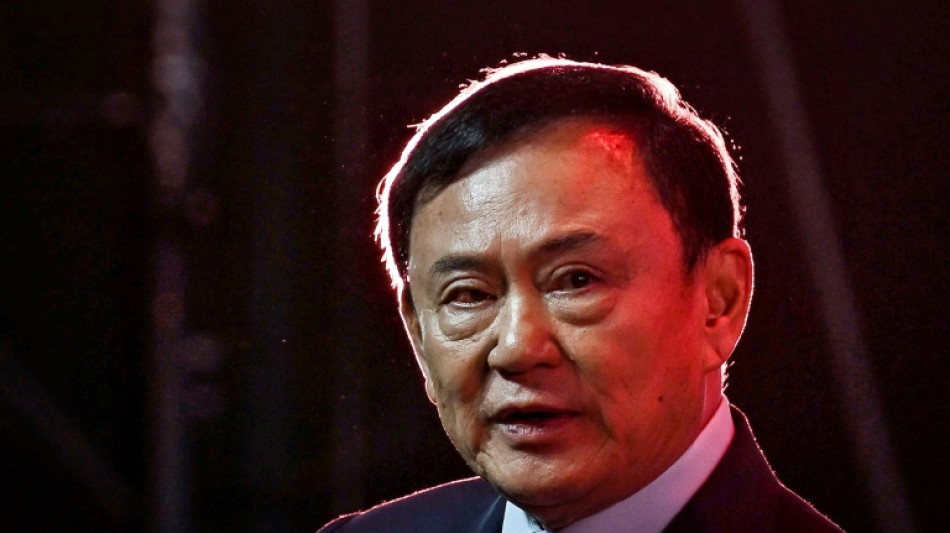
RBGPF
0.1000


Thailand's former prime minister Thaksin Shinawatra was cleared Friday of royal defamation charges, relieving a threat to his embattled political dynasty which has dominated Thai politics for two decades.
The 76-year-old had faced up to 15 years in prison, but a Bangkok court found him not guilty of breaching the kingdom's strict lese-majeste laws criminalising criticism of King Maha Vajiralongkorn and his family.
"The court dismissed the charges against Thaksin, ruling that the evidence presented was insufficient," his lawyer Winyat Chatmontree told reporters.
Thaksin left court ahead of his lawyer, smiling and telling the press the case was "dismissed", without making any further comment.
But his dynasty remains on the ropes, with his daughter Prime Minister Paetongtarn Shinawatra facing her own reckoning next week with a court decision due which may see her thrown out of office.
Thaksin's royal insult case stemmed from decade-old remarks he made in South Korean media relating to the 2014 military coup that overthrew his sister Yingluck.
AFP is not able to report the comments in detail because the lese-majeste law is so strict that doing so could in itself trigger criminal charges.
- Years of tussle -
Thailand has been roiled by a succession of coups, street protests and court orders as Thaksin and his followers tussled for power with the traditional pro-royalist, pro-military elite that sees him as corrupt, nepotistic and a threat to the traditional social order.
Twice elected prime minister in the early 2000s, Thaksin fled Thailand and lived in self-imposed exile for 15 years after he was ousted in a military coup, finally returning to the kingdom in August 2023.
He landed in Bangkok on the same day his family's Pheu Thai party took office at the head of a coalition government backed by their conservative former enemies, fuelling suspicions a backroom deal had been struck.
On arrival, Thaksin was immediately sentenced to eight years in prison on graft and abuse of power charges dating back to his time in office.
But instead of going to jail, he was whisked to a private room at a police hospital because of health problems.
Days later, the king cut his sentence to one year, and in February 2024, he was freed as part of an early release scheme for elderly prisoners.
His handling has led to another legal case, set to conclude on September 9, arguing that because he never served time in a jail cell, he was not eligible for early release.
Prosecutions for lese-majeste, known as 112 in Thailand for its section in the criminal code, have increased sharply since anti-government protests in 2020, some of which openly criticised the monarchy.
Thai Lawyers for Human Rights, a group providing legal services in many of the cases, says that more than 280 people have been prosecuted under section 112 in the last five years.
The law says anyone who "defames, insults or threatens" the king, queen, heir or regent can face up to 15 years in prison.
Rights groups and critics say the law is now interpreted so broadly as to stifle dissent and legitimate debate.
G.Fung--ThChM